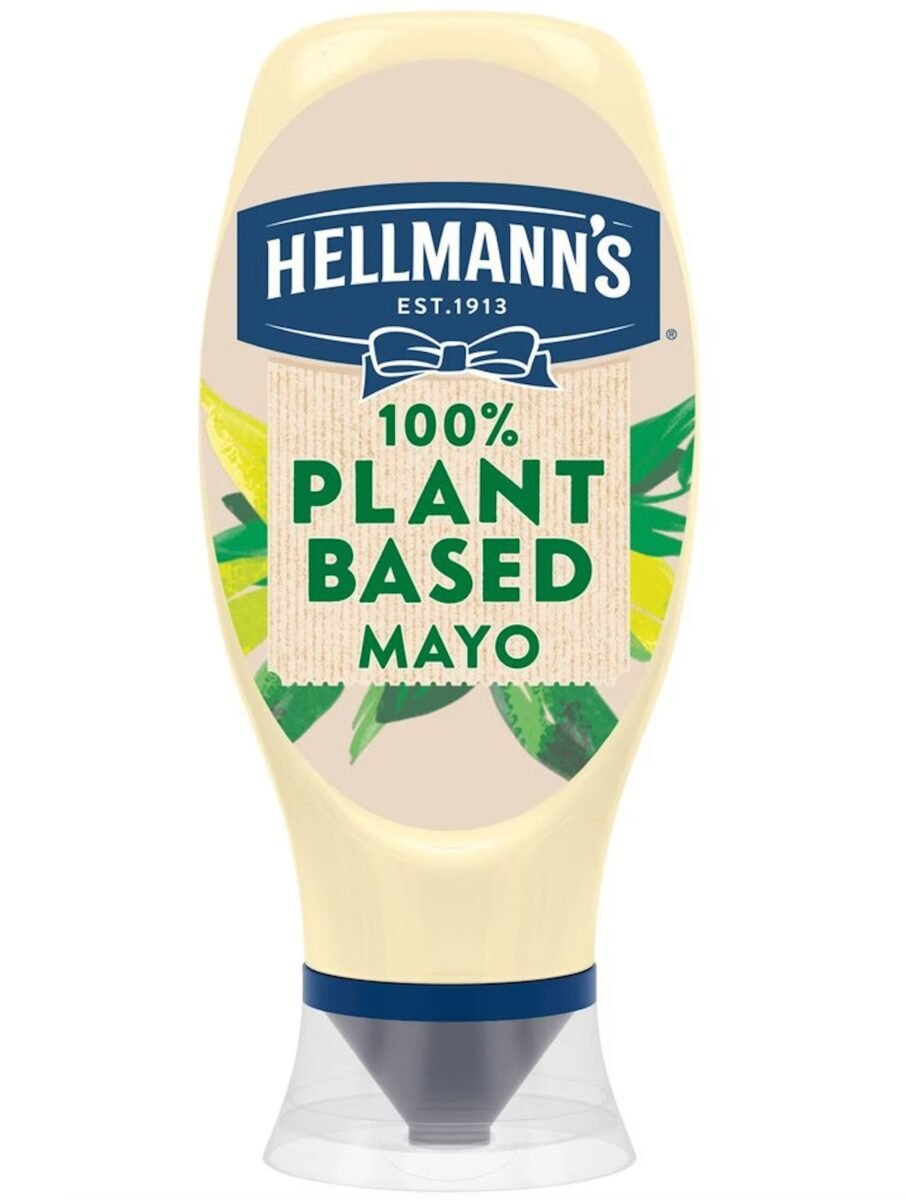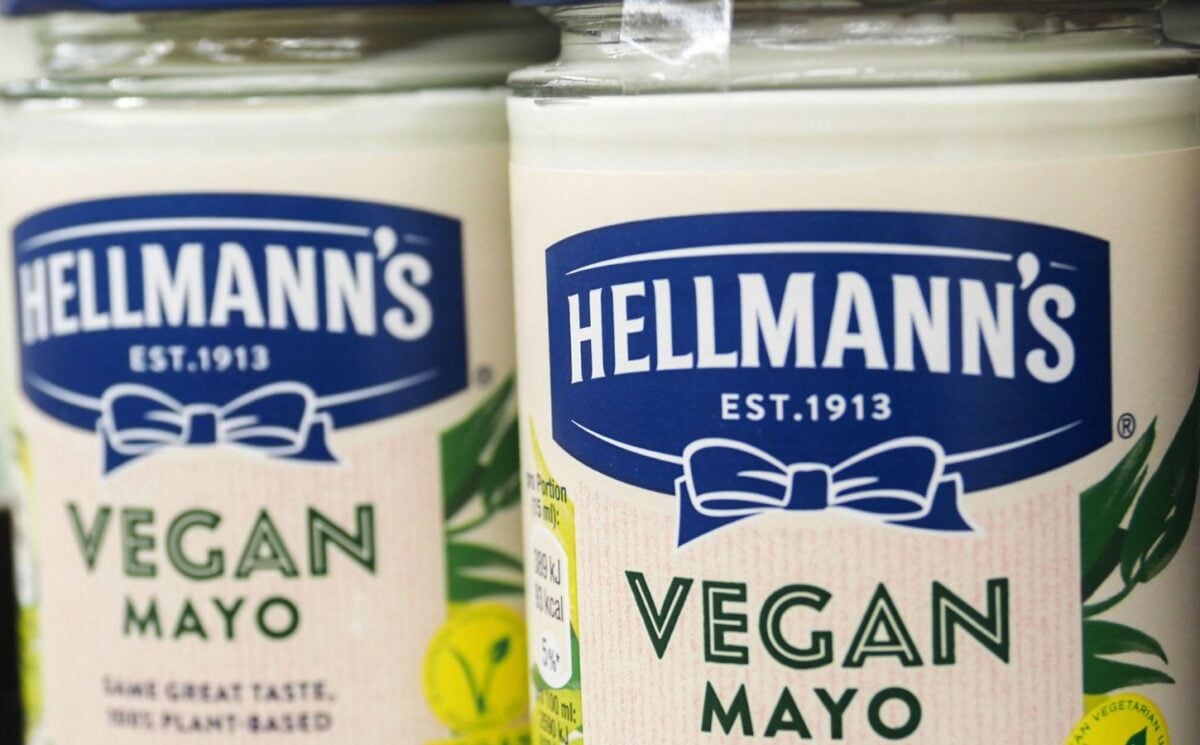Hellmann’s has rebranded its vegan mayonnaise as “plant-based” in order to be more “inclusive” to flexitarians. The product has also been reformulated, though remains fully vegan. It now contains less rapeseed oil and added sunflower oil and xantham gum.
Read more: Heinz Unveils ‘Barbie’ Sauce: A Pink Vegan BBQ Mayo
The company said in a statement that consumer research revealed that using “vegan” on packaging can be off-putting to non-vegans. Flexitarians are generally understood to eat a reduced amount of meat and other animal foods.
It could prove a good tactic to drive sales of the brand’s vegan mayo, which launched in 2018. Flexitarians, rather than vegans and vegetarians, are predominantly fuelling demand for plant-based products. In fact, they make up almost half of plant-based consumers in many countries. According to a 2021 poll, 13 percent of people in the UK are flexitarians, while two percent are vegan.

Read more: What Is Vegan Mayo? Find Out What It’s Made Of, And The Best Brands To Try
Hellmann’s said that there was “considerable headroom for growth” for vegan mayonnaise. This is “particularly from consumers who want to cut back on animal-based products without becoming fully vegan.”
Don’t say vegan?
Studies and surveys of consumer preferences have shown mixed results as to how people feel about “vegan” labels on food.
Research of consumers in the US from 2023 found that meat-eaters were twice as likely to choose a plant-based meal if it didn’t have a dietary label compared to when it was labeled as vegan. According to another recent study, foods marketed as “healthy” and “sustainable” were more likely to be chosen by people than if they were marketed as either vegan or plant-based.
Read more: JUST Mayo Returns To Shelves After A Four-Year Hiatus
However, a change in marketing is not a foolproof way to sell more of an animal-free product. One study from 2022 found that food items labeled as vegetarian or vegan were 24 percent more likely to sell than those labeled as plant-based.






